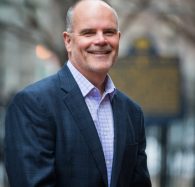Get Involved

 Become a Thought Partner
Become a Thought Partner
Partner with us to produce thought leadership that moves the needle on behavioral healthcare.
 Other options to get involved
Other options to get involved

Thank you!
We received your information and will be in contact soon!
Get Involved

 Grantmaking
Grantmaking
We fund organizations and projects which disrupt our current behavioral health space and create impact at the individual, organizational, and societal levels.
 Participatory Funds
Participatory Funds
Our participatory funds alter traditional grantmaking by shifting power
to impacted communities to direct resources and make funding decisions.
 Special Grant Programs
Special Grant Programs
We build public and private partnerships to administer grant dollars toward targeted programs.
 Program Related Investments
Program Related Investments
We provide funds at below-market interest rates that can be particularly useful to start, grow, or sustain a program, or when results cannot be achieved with grant dollars alone.
Get Involved

 Alyson Ferguson, MPH
Alyson Ferguson, MPH
Chief Operating Officer
Contact Alyson about grantmaking, program related investments, and the paper series.
 Samantha Matlin, PhD
Samantha Matlin, PhD
Senior Learning & Community Impact Consultant
Contact Samantha about program planning and evaluation consulting services.
 Caitlin O'Brien, MPH
Caitlin O'Brien, MPH
Director of Learning & Community Impact
Contact Caitlin about the Community Fund for Immigrant Wellness, the Annual Innovation Award, and trauma-informed programming.
 Joe Pyle, MA
Joe Pyle, MA
President
Contact Joe about partnership opportunities, thought leadership, and the Foundation’s property.
 Bridget Talone, MFA
Bridget Talone, MFA
Grants Manager for Learning and Community Impact
Add some text here
In January 2020, the Scattergood Foundation announced our new positioning statement and a more intentional goal of building a more just and equitable society. Since then, our worlds have been forever altered by the COVID-19 pandemic, a renewed and global movement for racial justice, and the relentless chipping away of democracy from white supremacist extremists.
It can feel like, as a nation, we’re falling far behind on advancing equity. There are overwhelming structural barriers baked into our system that keep progress at bay. Relying on our positioning statement as a guide, we remain committed to shifting the paradigm for behavioral health and unique spark and basic dignity in every human.
Especially as a behavioral health foundation, we believe that relationships and engagement are at the core of creating a more equitable world. Building relationships across differences allows us all to empathize with others, expand our worldview, and imagine a better future.
For us, this begins at home. We have actively sought out board members who represent diverse racial and ethnic groups as well as diverse perspectives. Our board has challenged us to ensure that we are applying an equity lens, and it has made us significantly more effective in working toward our goals. In our work providing technical assistance to the City of Philadelphia’s Community Expansion Grantees, we have consciously built a project team that elevates Black leadership. As we think toward our staffing in the future, we know that developing a work environment where people from all backgrounds can thrive will make us a stronger and more effective team.
We have also worked to develop new and fruitful relationships with grantee organizations that are led by Black, Brown, and Asian people who are deeply committed to the community because they are of the community.
By deepening our relationships with these grantees and other partners, we have been able to do work that alters the traditional philanthropic model by building participation in the grantmaking process. We are humbled by all that we’ve learned from our Community Fund for Immigrant Wellness Community Advisory Board and Decision Making Groups. We’ve committed more resources to participatory grantmaking through the Kensington Community Resilience Fund.
As we look toward the upcoming year, we know that there is significant work yet to do to advance equity. We’re on the eve of a mayoral and city council election that will have significant impacts for the future of Philadelphia and improving civic participation will bring about stronger outcomes for communities. This is why we have invested in Resolve Philly’s Shake the Table to engage with communities around issues that matter to them.
There are also tremendous opportunities to bring about a more equitable world that lie within the new national mental health crisis line – 988. Experts say that 80% of mental health crisis calls to 911 do not require a law enforcement response. Among Black and Brown communities who are disproportionately impacted by police violence, creating a system that responds with trained mental health professionals has the potential to save lives. In the Think Bigger Do Good policy series, we focused on the implementation of 988 in the paper, How Communities Must Use 988 to Improve Care and Correct Crisis System Disparities. We have and will continue to work with the City of Philadelphia to develop their continuum of crisis services so that residents will have access to high quality crisis services and we can prevent tragedies like the killing of Walter Wallace, Jr. by police.
We share our progress on this journey understanding that we must be accountable for how our work embodies anti-racist principles. More than two years into this work, we recognize we still have a long way to go and remain steadfast as we encounter stumbles in our journey. We look forward to continued partnership with our philanthropic, non-profit, government, business, and civic partners to improve transparency in our collective work toward advancing racial equity and justice.










